Learn How to Support Soil Life
Get the facts on feeding and protecting the underground communities that underpin plant health
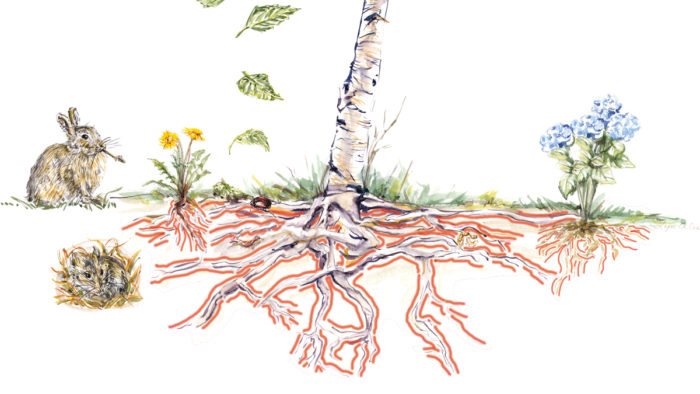
The vitality and resiliency of every garden depends on plants interacting with a vast array of insects, fungi, and microorganisms, especially those that make their homes in the soil. Through their root systems, plants participate in diverse underground communities where nutrients are continuously exchanged and recycled. The above-ground parts of a plant also play a role, with certain soil dwellers relying on material such as dead leaves as a food source. Keeping soil-based communities in mind, gardeners must think carefully about what we add to the soil and minimize activities that disrupt soil life.
View video: Basics of Soil Biology
Actions gardeners can take
The best way to thwart pests and pathogens is with formidable communities of well-fed symbiotic soil dwellers. You can apply the science of microbiomes in your garden by making sure that beneficial soil dwellers are supplied with an ample amount of organic matter and plant exudates. Here are some general principles to guide your care and feeding of soil life.
- Minimize soil disturbance. The soil dwellers you want to feed are among the tiniest creatures on earth, and so they are easily harmed. Rototillers, blowers, and shovels can wreak havoc on their bodies and upend their habitat. Gardeners will inevitably disturb the soil a little when we pull weeds and dig planting holes, but we can skip more destructive practices such as tilling compost into the soil or bagging up every leaf that falls to the ground.
- Keep soil covered. Bare soil is like an empty cupboard for soil life. Applying a variety of organic mulches provides a steady food supply for the decomposers, the predators that consume them, and the organisms that consume their waste products. The roots of living plants ensure that exudates flow into the rhizosphere year-round.
- Grow lots of different kinds of plants. A garden filled with a variety of plant species translates into a diet for soil dwellers that is diverse in terms of both organic matter and plant exudates. This stocks your soil with allies ready to take on pests or pathogens that stray into your garden.
We gardeners know that there are no guarantees when it comes to gardening. But your best insurance policy—healthy, well-fed soil dwellers—comes courtesy of nature’s time-tested ways. So cut down on digging, cover the soil, and grow diversity. Soil primed with the underground community on which plants depend translates into a garden suffused with good looks, vibrancy, and longevity.
Organic matter and exudates are fuel for soil life
In a healthy garden, an eat-and-be-eaten world of organisms thrums in the soil, fed by two main kinds of food.
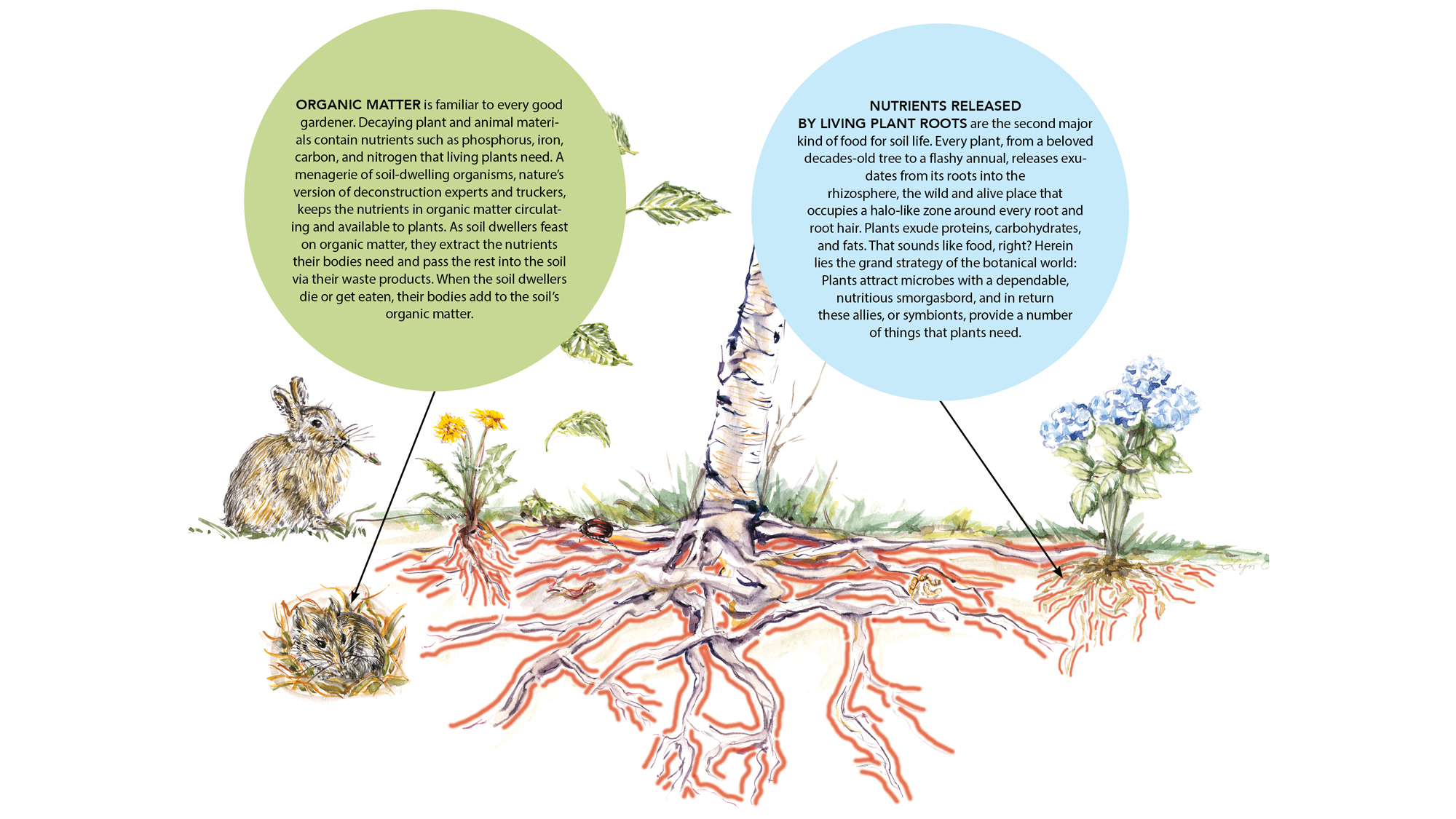
Plants get by with help from little friends
The rhizosphere functions like a bio- logical bazaar where plants can barter for the goods and services they need. In this unseen world, exudates are the elixir for many symbiotic relationships between plants and communities of soil dwellers. Plants and most soil dwellers build a dynamic, living, two-way plan for health. It’s an all-for-one-and-one- for-all strategy.
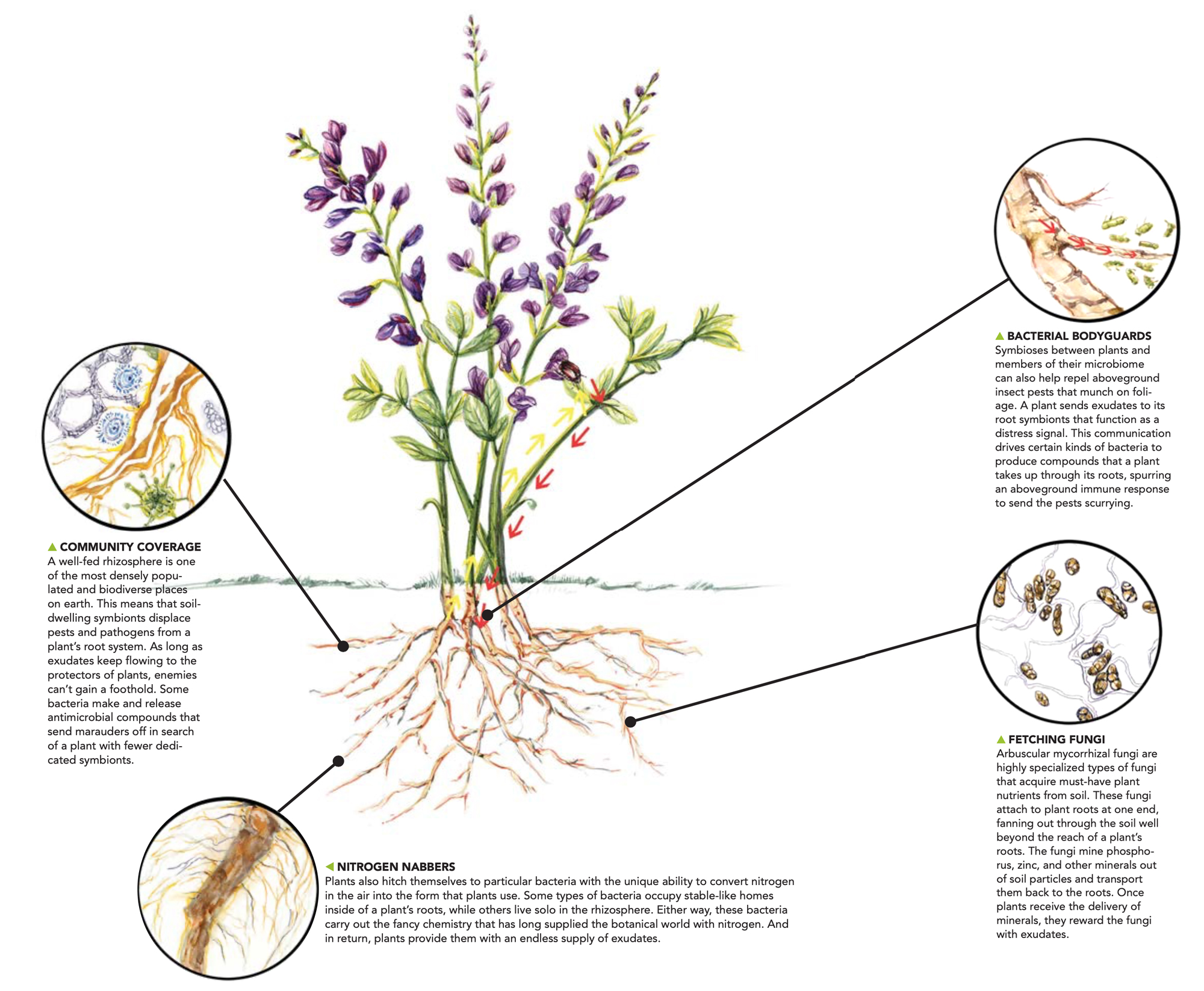
Anne Biklé is a biologist, avid gardener, and co-author of The Hidden Half of Nature: The Microbial Roots of Life and Health.
Fine Gardening Recommended Products
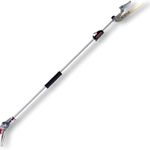
ARS Telescoping Long Reach Pruner
Fine Gardening receives a commission for items purchased through links on this site, including Amazon Associates and other affiliate advertising programs.
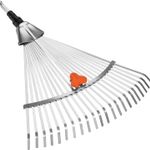
Gardena 3103 Combisystem 12-Inch To 20-Inch Adjustable Metal Fan Rake Head
Fine Gardening receives a commission for items purchased through links on this site, including Amazon Associates and other affiliate advertising programs.
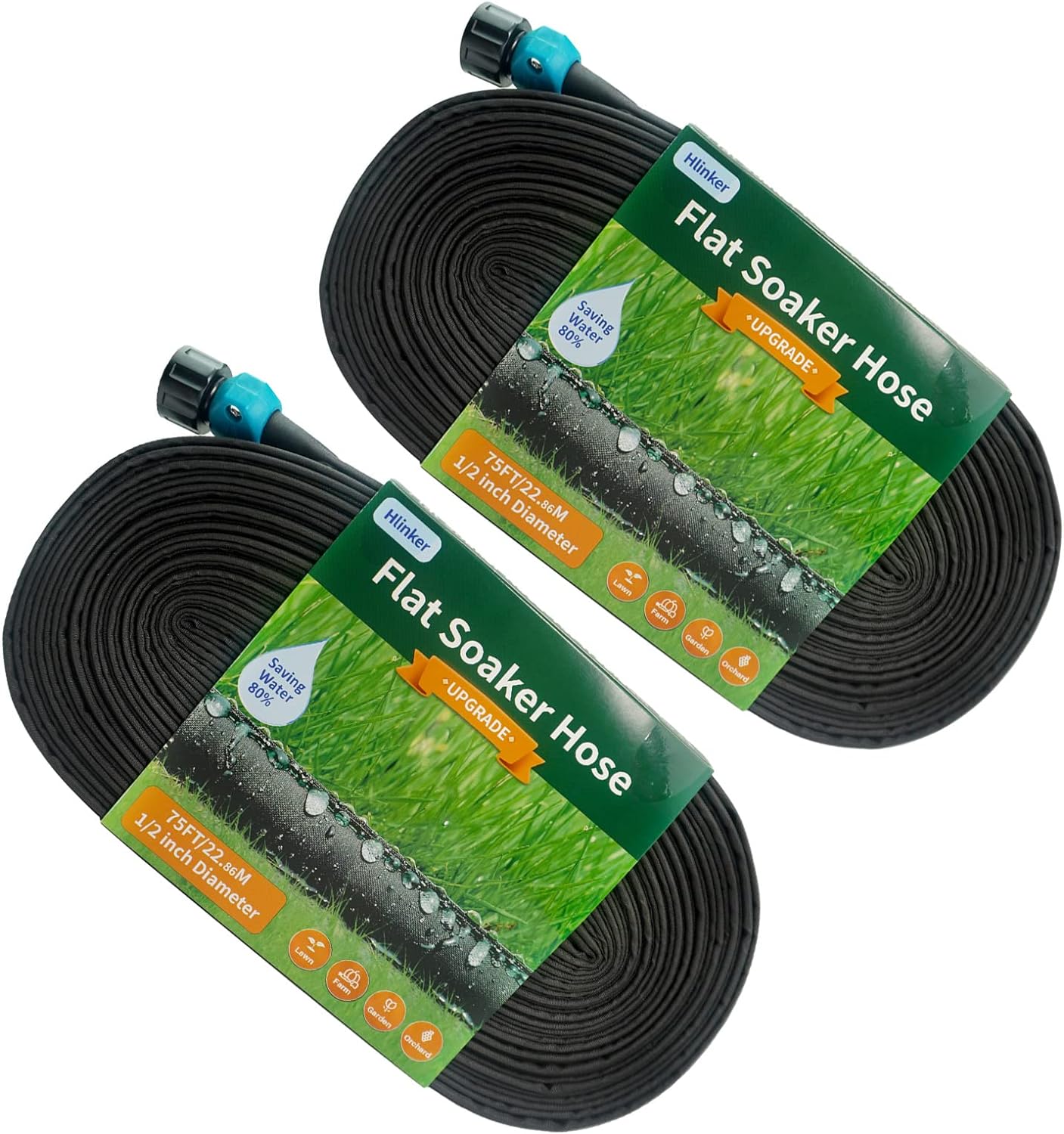
Flat Soaker Hose 75 150 FT for Garden Beds
Fine Gardening receives a commission for items purchased through links on this site, including Amazon Associates and other affiliate advertising programs.

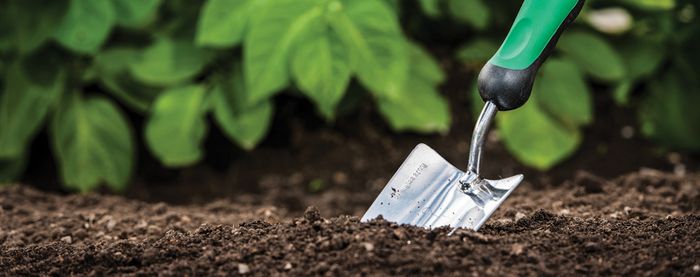




Comments
This post gave us useful information to support soil life. Thanks for posting.
https://gta5cheats.c
https://gta5cheats.co
Log in or create an account to post a comment.
Sign up Log in